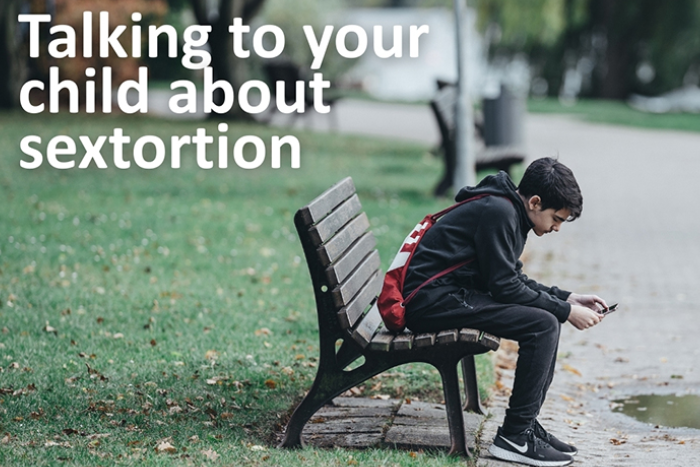
Sextortion of young people on the rise
Police have reported an increase in the number of young people and adults facing ‘sextortion’ – a type of online blackmail.
Victims are forced in to paying money or meeting other demands by criminals who threaten to release indecent/sexual images or other information online.
This is called ‘Financially Motivated Sexual Extortion’, a type of online blackmail often referred to as ‘sextortion’.
Victims of any age are potential targets, however teenage males aged 14-17 and male adults aged 18-30 are particularly at risk.
Lincolnshire Police officer have the following advice for victims and for young people to avoid becoming ensnard by offenders.
How to recognise sextortion
Criminals often target people through dating apps, social media, webcams, or pornography sites. They may use a fake identity to befriend you online. If a person you’ve just met online chats to you in a sexual way, or asks for sexual images, it might be an attempt at sextortion.
You should be wary if someone you’ve met online:
- is trying to start a relationship with you very quickly (they may even send you a sexual image first)
- chats to you in a sexual way, or asks for sexual images, soon after you've met them.
- has sent friend requests to lots of people, not just you
- repeatedly asks you to do sexual things that you’re not comfortable with
- tells you they’ve hacked your account or have access to your contacts
Sextortion attempts can happen very quickly, or they can happen over a long time. You should never share sexual images or information about yourself if you are not comfortable.
You can still be a victim of sextortion if you haven't shared sexual images or information. Criminals may have hacked one of your accounts, or created edited or fake images or videos, like deepfakes, of you that appear real.
Even if blackmail isn't involved, sharing or threatening to share intimate photos or videos of you without your permission is illegal. This is called 'revenge porn' or intimate image abuse.
If you are a victim/before reporting to police
Stop all communication with the offender immediately. You should also never pay, as there is no guarantee that this will stop the threats.
If you want to get your account removed, deactivate it rather than delete it. This will make it easier for us to find evidence.
You don't have to gather 'evidence' like screenshots, text messages, videos or photos before you report to us. All you need to do when you report is tell us what happened.
If you have any screenshots, text messages, videos or photos, details like these can be useful to us. It is also helpful if you can put these details in a timeline.
Even if the photo or video is no longer available, you should still report it to us. We may be able to recover the image.
Useful information if you have it:
- sender's name
- contact details, including email addresses and phone numbers
- usernames
- bank account details
- user IDs
- which platform, app, social media site, or online space you were using
- when it happened
- details of what was sent, written, or spoken in a voice note or video
You should only screenshot an intimate image if you are sure the person is over 18. If you are unsure, don’t screenshot, record, or share it with anyone, even the police. It could be a criminal offence.
Ways to report
You can report these crimes online.
If you are under 18, you can report sextortion, or any other form of online child sexual abuse, to the National Crime Agency’s Child Exploitation and Online Protection (CEOP) Safety Centre.
Your report will be sent direct to our control room where it will be reviewed by the same team who answer our calls.
Visit a police station
If you want to speak to an officer in person, we can provide a safe and comfortable environment at any of our police stations.
If you need a translator, we can provide someone by phone to start with and later in person.
